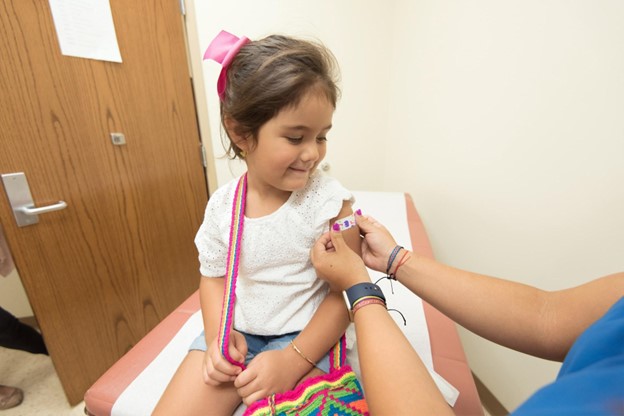Healthcare access plays a crucial role in a child’s growth and well-being. From birth until age five, a child’s brain develops rapidly and is highly influenced by environmental factors.
Regular access to pediatric care and preventative screenings for developmental delays or disabilities leads to better long-term outcomes physically, emotionally, academically, and professionally as adults.
However, millions of children worldwide do not receive adequate healthcare or nurturing care during this critical time. According to the World Health Organization, 93 million children under age 14 experience moderate or severe developmental delays or disabilities but many go undetected or untreated due to limited access to healthcare systems providing such services.
And on top of that, a child’s access to healthcare is dependent on a variety of individual, family, and systemic factors. Let’s explore them.
Factors Affecting Access to Healthcare
Employment, Housing, Education, Public Safety, and Food Access
Access to healthcare is influenced by several interconnected factors, including employment, housing, education, public safety, and food access. Parents with stable employment are more likely to have health insurance coverage for their children, which allows them to shop insurance health quotes to find affordable plans meeting family needs. Similarly, safe and affordable housing contributes to better health outcomes by reducing the risk of exposure to environmental hazards.
Education plays a role in improving health literacy, which affects parents’ ability to make informed decisions about their children’s healthcare needs. Public safety and food access also contribute to overall physical, social, and mental health status.
Financial Barriers
Health Insurance Coverage
Health insurance is crucial in providing access to healthcare for children. Public programs like Medicaid and the State Children’s Health Insurance Program (SCHIP) play a vital role in ensuring that low-income children receive proper care. According to studies, having health insurance for children, especially those eligible for public health care, increases their likelihood of receiving care and experiencing improved health outcomes.
Private insurance also plays a role in providing healthcare access to children, but it may not be as comprehensive or affordable as public programs.
Family Income
Family income is another financial barrier to healthcare access. Lower-income families may struggle to afford out-of-pocket costs for healthcare services, even if they have insurance coverage. This financial strain can lead to delayed or skipped medical appointments, negatively impacting children’s health and development.
Non-Financial Barriers
Family Structure
Family structure can also affect healthcare access for children. For example, children living in single-parent households or with grandparents may face challenges in obtaining healthcare services due to limited resources or a lack of knowledge about available services.
Racial, Ethnic, and Cultural Factors
Racial, ethnic, and cultural factors can create disparities in healthcare access. For instance, language barriers and cultural differences can make it difficult for some families to navigate the healthcare system or communicate effectively with healthcare providers. This can result in missed appointments and inadequate care, ultimately affecting children’s health and development.
Availability of Healthcare Providers
Limited availability of healthcare resources, such as physician shortages, can lead to longer wait times and delayed care, reducing access to health services and increasing the risk of poor health outcomes. Rural and low-income urban areas may face a lack of providers or facilities, further exacerbating disparities in healthcare access for children in these communities.
Effects of Healthcare Access on Child Development
Physical Health
Improved outcomes are directly linked to children having access to healthcare. With proper access, preventable conditions can be addressed early on, and children can receive appropriate care when sick or injured. This ultimately leads to better overall health and well-being.
Emotional and Mental Health
Research on the impact of healthcare access on children’s mental health is limited, but it is clear that access to mental health services is essential for early intervention and treatment. Ensuring children have access to mental health care can help address issues such as anxiety, depression, and behavioral challenges.
Growth and Development
When children have access to healthcare, they are more likely to reach their full potential as adults. This includes their physical, emotional, and cognitive development. Regular monitoring of child health and development, including developmental screening with validated tools at specific ages, can help identify and address potential issues early on.
Academic Performance
Healthcare access is also linked to better academic performance. Children with Medicaid access, for instance, have been found to have better grades, fewer missed days, better graduation rates, and higher long-term earnings. By ensuring children are healthy and receiving appropriate care, they can focus on their education and maximize their academic potential.
Conclusion
To sum up, healthcare access is essential to a child’s healthy development, growth, and future success. While coverage alone does not guarantee access or optimal outcomes, it opens the door to critical services that can identify and address developmental delays or disabilities early on.
When we invest in our children’s health, we invest in our collective future. As healthcare systems and policies continue evolving, we must work to dismantle barriers to access and provide all children with the foundation to reach their full potential. Their growth and development depend on the care and opportunities we afford them today.

